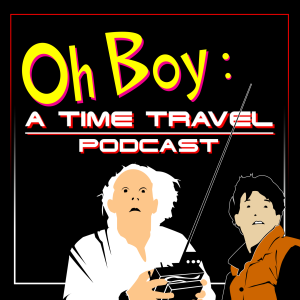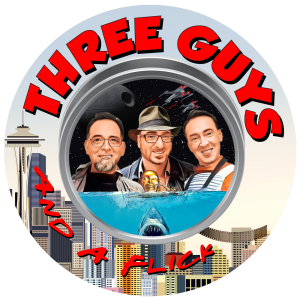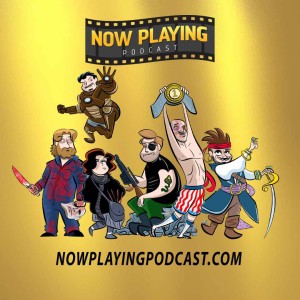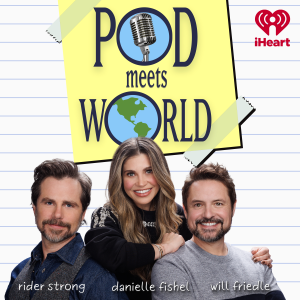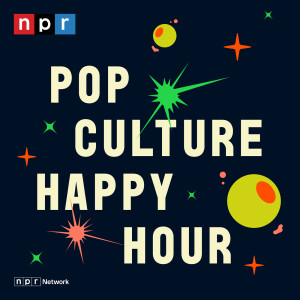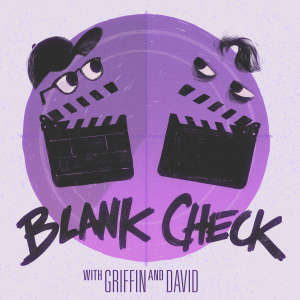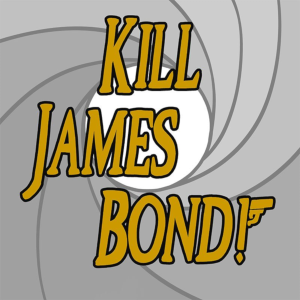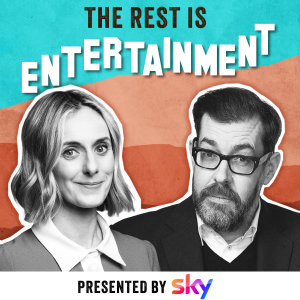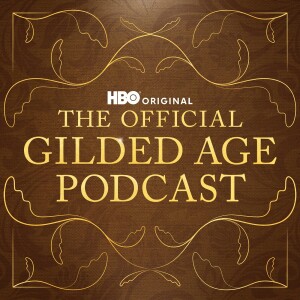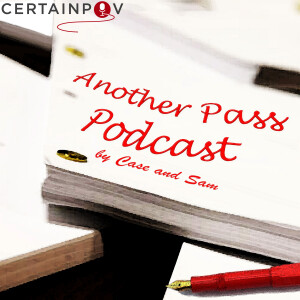

Episode List
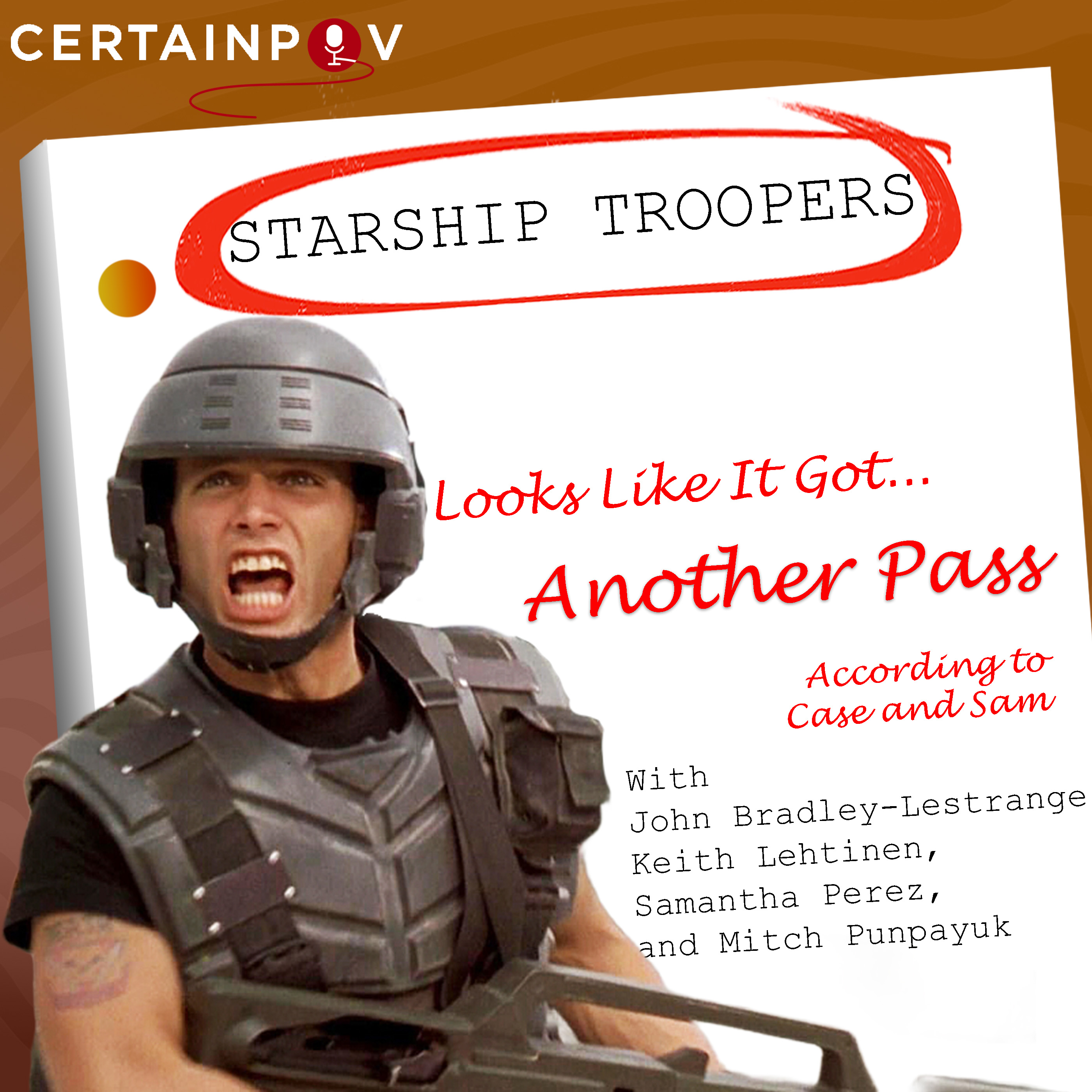
Starship Troopers Got Another Pass
For the 175th episode of Another Pass, we had to talk about a cult classic so cultish and such a classic that it demanded two separate panels! That's right! For a discussion on Starship Troopers, Case and Sam are joined by John Lestrange (The History Wizard), Samantha Perez, Keith Lehtinen, and Mitch Punpayuk! Would you like to know more? Music by Vin Macri and Matt Brogan Podcast Edited by Sophia Ricciardi Overview Episode 175 of 'Certain POV's Another Pass' podcast explores Starship Troopers, addressing its satirical elements and impact on audiences, featuring two distinct panels. Personal viewing experiences highlight how initial interpretations of the film changed over time, with multiple guests recognizing the underlying satire. The film's satirical intent often missed by audiences; Poe's Law indicates difficulty in distinguishing extreme satire from genuine claims without clear indicators. Elements of fascism illustrated in the United Citizen Federation's military service requirements and portrayal of authority figures with war injuries. Propaganda within the film includes false flag operations, demonstrating dehumanization of 'bugs' and justifying violent military actions. Johnny Rico's character illustrates an alt-right pipeline, showing the process of radicalization through military indoctrination and societal pressure. Significant differences between the original book and movie adaptation noted, including a shift in character motivations and depictions of technology. Production challenges included injuries during boot camp training and instances of disrupted filming, showcasing the difficulties faced by the crew. Cultural impact acknowledged, as Starship Troopers influenced franchises like Starcraft and Helldivers, with modern audiences resonating with its themes. New adaptations are in development, including a Sony project directed by Neil Blomkamp, indicating ongoing interest in the Starship Troopers franchise. Notes ️ Episode Introduction & Format (00:01 - 02:51) Episode 175 of 'Certain POV's Another Pass' podcast discussing Starship Troopers as a movie that overcame adversity. Two-panel format with different guest combinations to cover extensive discussion topics. First panel features Case Aiken, Sam Alicea, John Lestrange, and Samantha Perez focusing on sociological themes. Second panel includes Case Aiken, Sam Alicea, Keith Lehtinen, and Mitch Punpayuk discussing filmmaking aspects. Personal Experiences with Starship Troopers (04:08 - 16:01) Case Aiken saw it at age 13 in 1997, initially missed satirical elements, took it as straightforward action film. Sam Alicea watched at 16-17, uncomfortable with bugs but recognized something 'off' about the film. John Lestrange first viewing at age 7 when released, watched for first time yesterday with Holocaust studies background. Samantha Perez saw chopped TV versions as teenager, recently rewatched with fresh perspective. Keith Lehtinen was 14 when released, became aware of actors through this film, Dina Meyer was first crush. Mitch Punpayuk saw at 15, bought DVD before owning DVD player, waited two years to watch it. Satirical Elements & Reception Analysis (20:09 - 29:48) Movie functions as fascist propaganda satire but audiences often missed the satirical intent. Poe's Law applies - satirical expressions of extremist views indistinguishable from actual extremist views without clear indicators. 1997 timing problematic for satire reception - post-Cold War, pre-9/11 context limited audience understanding. Director Paul Verhoeven grew up in Nazi-occupied Netherlands, assumed audience familiarity with fascist themes. Susan Sontag's 'Fascinating Fascisms' (1975) referenced - Nazi ideal of 'brave, pretty and stupid' Aryan forces. ️ Fascist Society Elements (24:14 - 01:01:13) United Citizen Federation requires military service for citizenship and voting rights. All adult authority figures shown with missing limbs or severe scarring from military service. 14 characteristics of fascism present but modified - notably lacks typical gender hierarchy/sexism. Reproduction licensing system makes having children difficult for non-citizens. Public flogging and televised executions as standard punishments. Bug War Propaganda Analysis (30:42 - 40:12) Buenos Aires meteor attack potentially false flag operation rather than bug weapon. Mormon colony massacre on bug territory used as justification despite humans being invaders. 'Would you like to know more?' segments function as in-universe propaganda reels. Children encouraged to stomp bugs in disturbing propaganda scene. Brain bug capture presented as victory but war clearly being lost. ️ Character Development & Military Pipeline (51:47 - 01:00:16) Johnny Rico represents alt-right pipeline - young man radicalized through military indoctrination. Carmen Ibanez portrayed as ambitious, prioritizing military career over relationships. Dizzy Flores changed from male character in book to female love interest. Carl Jenkins represents military intelligence, disappears into classified operations. Sergeant Zim and Lieutenant Rasczak serve as father figures in military structure. Book vs Movie Adaptation (23:13 - 28:17) Originally titled 'Bug Hunt at Outpost 7' before being adapted to Starship Troopers. Director didn't finish reading Heinlein's book, called it 'too boring'. Mobile Infantry in book wore powered armor with jump jets, removed due to budget/wire work complexity. Bugs more technologically advanced in book, movie presents them as purely biological. Buenos Aires not Rico's hometown in book, major plot change for personal motivation. Production Challenges & Behind-the-Scenes (39:34 - 07:35) Cast underwent intensive boot camp training, Casper Van Dien and Dina Meyer sustained injuries during filming. Intoxicated crew member mentioned bomb on flight, disrupting production travel. Pre-visualization test at Vasquez Rocks convinced TriStar to fund after Waterworld concerns. 15-foot practical ship models used alongside CGI for space scenes. Starship Trooper armor reused in multiple productions including Power Rangers, Firefly, Planet of the Apes. Special Effects & Technical Aspects (08:52 - 06:24) Mix of practical and CGI effects particularly effective for bug creatures. Netflix 4K viewing shows quality variations, some scenes appear grainy especially green screen backgrounds. Brain bug close-ups noted as particularly disturbing and well-designed. Space scenes generally poor quality except for specific flight sequences. Cultural Impact & Legacy (14:18 - 17:26) Starcraft, Warhammer 40K, and Helldivers directly influenced by Starship Troopers aesthetics. Five-movie franchise plus Roughnecks CGI TV series expanded universe. Modern resonance with current political climate makes satirical elements more apparent. Gif culture frequently references film during political tensions. Cast & Casting Decisions (17:18 - 21:57) Unknown actors cast intentionally to look 'authentically young' but appear older due to training. Mark Wahlberg and Matt Damon auditioned for Rico role. Dina Meyer originally read for Carmen, chose Dizzy role instead. Neil Patrick Harris commentary recorded pre-How I Met Your Mother fame. Character actors include Amy Smart, Seth Gilliam, Timothy Omundson in small roles. Audience Reception & Box Office (15:07 - 20:09) Test audiences disliked Carmen character, preferred Dizzy. Critical reception missed satirical intent, even thoughtful reviewers uncertain. Box office made budget back but not considered major success. Cult classic status developed over time as satirical elements became more apparent. Thematic Analysis (34:39 - 51:47) Dehumanization through 'bug' imagery parallels historical genocidal rhetoric. Violence as societal foundation explicitly stated in film's philosophy. Military-industrial complex critique through endless war presentation. Youth radicalization process demonstrated through Rico's character arc. Future Adaptations (13:51 - 13:51) Sony developing new Starship Troopers adaptation directed by Neil Blomkamp. Helldivers movie also in development as spiritual successor.
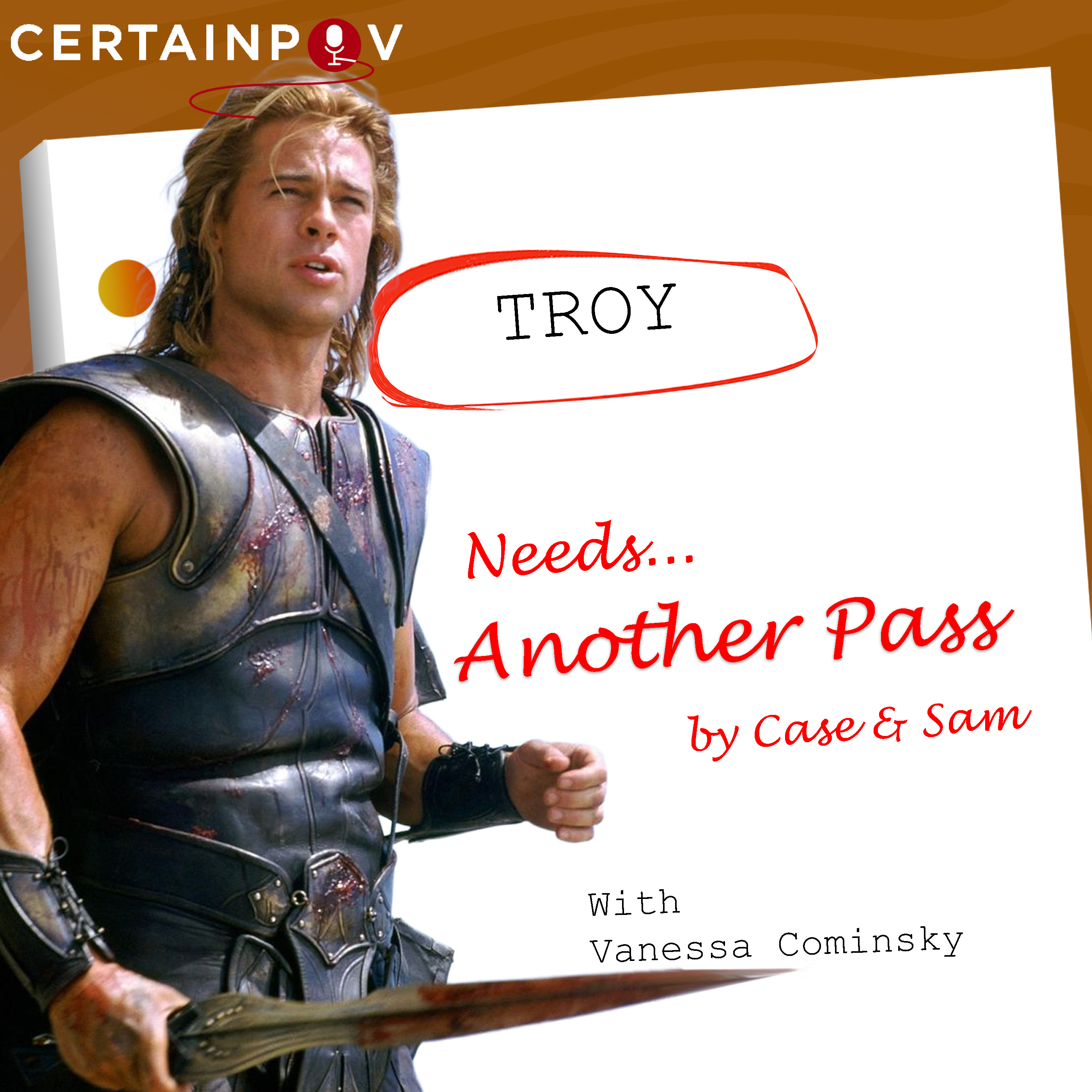
Another Pass at Troy
Vanessa Cominsky joins Case and Sam to RAGE against this awkward historical epic! Overview Podcast hosts Case Aiken and Sam Alicea provide a framework for discussing the 2004 film Troy, highlighting its connection to early 2000s epic films like Gladiator and 300. Vanessa Cominsky, a guest and classics major, notes a 4-year professional bond with Case stemming from shared academic interests. David Benioff, the film's screenwriter, is discussed in relation to his later work on Game of Thrones and identified issues in narrative depth. Whitewashing criticism surfaces regarding the film’s predominantly white cast, despite its story set in a historically diverse region. Analysis reveals a lack of clear passage of time, compressing the depicted 10-year Trojan War into a brief narrative span. Costume design receives praise for historical accuracy while the film’s runtime discrepancies are critiqued, with the director’s cut deemed excessive. Thematic exploration includes Agamemnon's characterization as a villain symbolizing US imperialism, contrasting with sympathetic portrayals of the Trojans. Sean Bean's potential as Odysseus is noted but criticized for underutilization, while Peter O'Toole’s Priam provides limited but impactful performance. Improvement suggestions include altering the title to better reflect Achilles' journey and revising the narrative structure to enhance character development. Upcoming initiatives include a scholarship program for women in wine, launched by Vanessa Cominsky's nonprofit Bon Vitalite in 2025. @vminsky @womenofwinedc Www.vinVitalité.org (Pronounced vinn vitahlihtay) Notes ️ Podcast Introduction & Setup (00:00 - 02:45) Hosts Case Aiken and Sam Alicea introduce the 'Another Pass' podcast, discussing movie analysis and improvements. Guest Vanessa Cominsky introduced as Case's coworker from wine/spirits industry and fellow classics major. Discussion of 4-year professional relationship and bonding over classics background. Movie Context & Background (02:45 - 09:38) Analysis of 2004 film Troy as adaptation loosely based on oral tradition. Discussion of movie within context of early 2000s epic films including Gladiator, 300, and Lord of the Rings trilogy. David Benioff identified as screenwriter, connecting to later Game of Thrones writing style issues. Observation that Odysseus character tells audience he's clever but never demonstrates intelligence in actual scenes. Political interpretation: movie reflects 2004 centrist liberal perspective on Middle Eastern conflicts with 'support the troops' messaging. Film Production & Casting Analysis (09:38 - 19:22) Vanessa's personal connection: used movie for high school Latin convention project and senior thesis. Whitewashing criticism - movie depicts conflict between Greece and Middle East with entirely white cast. Brad Pitt as main marketing draw playing Achilles in peak popularity period. Case's viewing experience in Rome during classics trip, creating nostalgic connection to material. Story Structure & Adaptation Choices (19:22 - 28:32) Movie covers broader Trojan War story rather than just Iliad, including Trojan Horse sequence not in original epic. Brian Cox as Agamemnon praised as perfect casting choice despite whitewashing issues. Discussion of movie's approach to gods - humans take credit for actions rather than divine intervention. ️ Character Analysis - Heroes and Villains (28:32 - 38:14) Agamemnon positioned as main villain representing US imperialism, while Trojans portrayed sympathetically. Hector vs Achilles juxtaposition works well as respective champions of each side. Orlando Bloom as Paris criticized as too whiny and lacking roguish charm needed for character. Eric Bana as Hector praised as everyone's 'big brother' figure and moral center. Production Design & Technical Elements (38:14 - 47:42) Costume design highly praised for historical accuracy and visual distinction between Greeks and Trojans. Director's cut vs theatrical cut - director's cut too long at 3 hours 16 minutes with unnecessary gore. Runtime issues - theatrical cut feels rushed while director's cut is excessive. War Portrayal & Geographic Issues (47:43 - 56:37) Time compression problem - 10-year war feels like weeks or months with no passage of time indicated. Troy's geography poorly established - unclear city layout and siege logistics. Siege warfare portrayed as single-direction battle rather than comprehensive blockade. Thematic Elements & Religious Context (56:38 - 01:05:46) Gods' role minimized to hint at divine influence without direct intervention. Moral philosophy embedded in Achilles-Briseis conversations about mortality and divinity. Historical accuracy questioned regarding Bronze Age vs Classical Greek terminology and social structures. Casting and Performance Critique (01:05:46 - 01:15:32) Sean Bean as Odysseus underutilized despite perfect casting choice. Peter O'Toole as Priam noted as big casting choice but limited screen time. James Cosmo casting questioned as underused Trojan general. Improvement Proposals - Sam's Pitch (01:15:32 - 01:26:16) Title change to 'The Wrath of Achilles' to better reflect actual story focus. Sean Bean expansion - more scenes showing passage of time and war strategy. Runtime reduction - cut Trojan perspective to focus on Greek side and Achilles' journey. Narrative structure - use Odysseus as storyteller/narrator rather than voiceover. Improvement Proposals - Vanessa's Pitch (01:26:16 - 01:36:20) Scope change to focus on Achilles from moment Odysseus recruits him. Character development - establish Greek power structure and vassal relationships. Agamemnon characterization - emphasize him as villain representing imperialism more clearly. Improvement Proposals - Casey's Pitch (01:36:20 - 01:45:13) Geographic clarity - establish Troy's layout and siege positioning with additional CG shots. Time passage - visual indicators and dialogue establishing years-long conflict. Battle variety - different environments including sea battles and raids on surrounding areas. Violence balance - between theatrical cut's sanitization and director's cut's excess. Final Discussion & Wrap-up (01:45:13 - 02:05:58) David Benioff background revealed as Goldman Sachs executive's son, explaining Hollywood access. Vanessa's organization - Bon Vitelite, DC women in wine industry nonprofit with 501(c)(3) status. Scholarship program launching 2025 for women in wine industry. Next episode preview - Highlander 2: The Quickening.
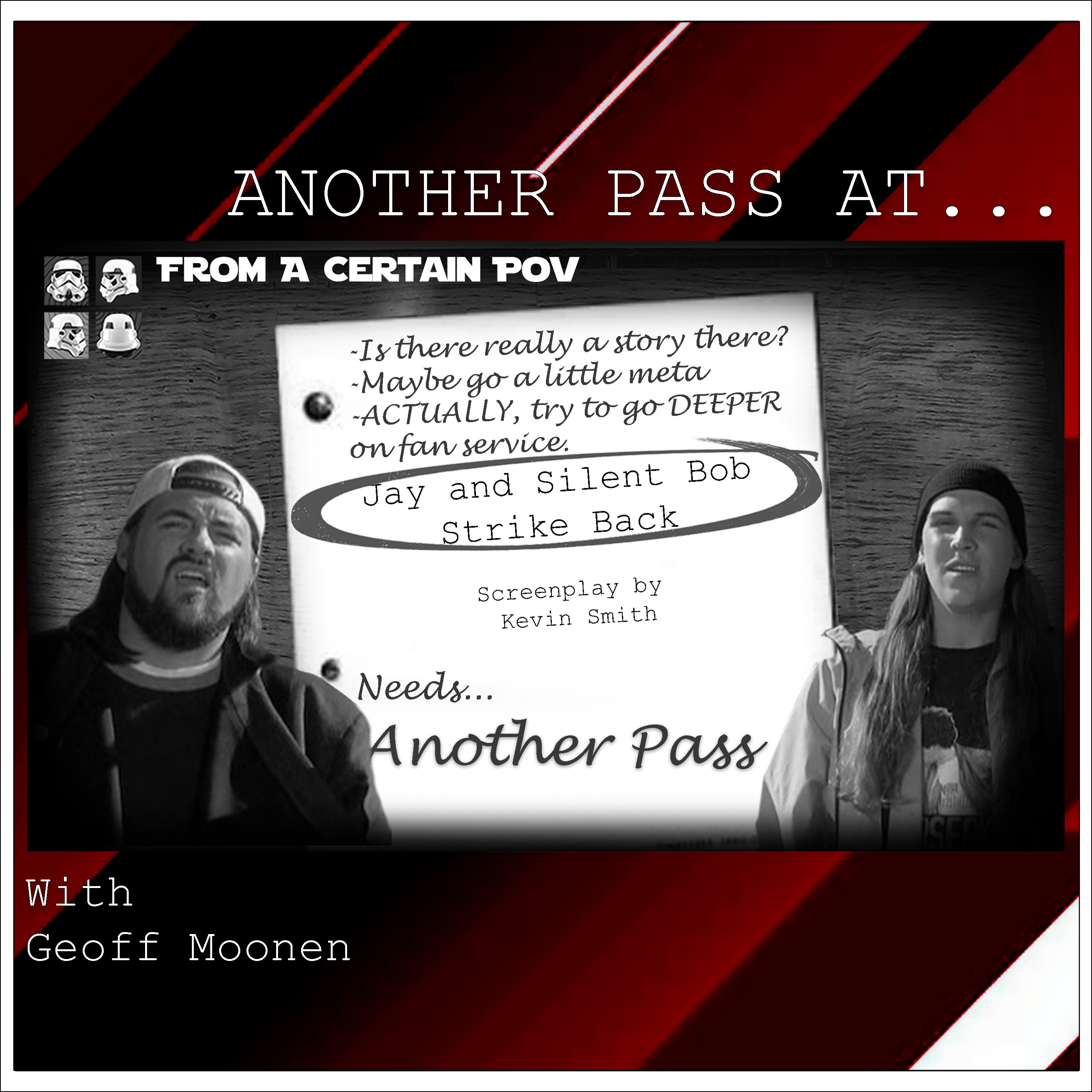
Another Pass at Another Pass at Jay and Silent Bob Strike Back
Case and Sam are looking back at the earliest episodes of the show! Check out their thoughts on this classic episode when Case sat down with Geoff Moonen and chatted about Jay and Silent Bob Strike Back! Overview Episode dedicated to Kevin Smith's influence following his recent heart attack, underscoring the importance of his work in nerd culture. View Askewniverse detailed as an interconnected film universe that began with Mallrats and culminated in Jay and Silent Bob Strike Back. Jason Mewes faced significant personal challenges during filming, impacting production due to substance abuse issues. Film characterized as having a weak overall plot with awkward transitions, relying on 'and then' storytelling. Subplot regarding animal rights deemed problematic and outdated, particularly in post-9/11 context. Noted lack of diversity in casting and representation, with a predominantly white male ensemble. Humor criticized for not aging well, featuring outdated jokes and problematic themes reminiscent of early 2000s comedy. Suggested structural improvements include framing devices and varying visual styles to enrich storytelling. Interview with Sam introduced new perspectives while affirming original hosts' critiques of structural flaws in the film. Overall legacy reflects a blend of quotability and cultural relevance, highlighting Kevin Smith's early comedy style compared to current film pacing. Notes Episode Context & Background (00:05 - 07:17) Another Pass at Another Pass podcast episode featuring hosts discussing a previous episode about Jay and Silent Bob Strike Back. Episode prompted by Kevin Smith's recent heart attack, wanting to honor his work and influence on nerd culture. 49-minute brisk episode with good audio quality featuring Case Aiken and Jeff Moonan discussing Kevin Smith's filmography. Discussion positioned as 'most meta episodes' - an episode about an episode about a movie that references many other movies. Kevin Smith Universe Analysis (08:40 - 19:26) View Askewniverse explained as interconnected reality starting accidentally with Mallrats, tying together story elements from previous films. Movie served as intended conclusion to the View Askewniverse with Jay and Silent Bob as main characters after being minor characters in Clerks. Jason Mewes struggled with substance issues during filming, drinking heavily while trying to get off drugs, making production difficult. Film positioned as 'greatest disc two of some other movie ever made' - ultimate bonus feature content rather than standalone film. Film Structure & Content Issues (21:58 - 48:37) Movie suffers from awkward transitions and 'and then' storytelling rather than consequential plot progression. Light plot structure with random elements, particularly weak animal rights terrorist subplot that feels dated post-9/11. Racial and gender representation problems - almost exclusively white cast with limited female characters in meaningful roles. Film's humor hasn't aged well with numerous gay jokes, misogynistic elements, and dated comedy style reminiscent of Austin Powers era. Proposed Improvements (24:51 - 42:01) Restructure with framing device - open with Jay and Silent Bob at diner with Suzanne the orangutan, telling story in flashback. Jay as unreliable narrator would allow for cutting awkward transitions and explaining absurd elements as his perspective. Blues Brothers structure suggested - characters piss off everyone along the way, leading to massive chase sequence at climax. Different visual styles for Jay's version vs. Bob's version vs. reality to distinguish narrative perspectives. Kevin Smith's Evolution as Filmmaker (12:18 - 42:01) Smith writes about his current life experiences - Clerks while working retail, Mallrats about studio experience, Chasing Amy about creative ownership. Jay and Silent Bob Strike Back represents Smith dealing with internet trolls and fan expectations in nascent online era. Zack and Miri Make a Porno mentioned as better examination of filmmaking process, with Jason Mewes delivering strong performance. Smith's limitation as visual director acknowledged - focuses on dialogue and character interactions over cinematography. Cultural Context & Legacy (07:17 - 17:45) Film represents early 2000s comedy style with extended gags and slower pacing compared to modern rapid-fire editing. Miramax studio system comparison made to classic Hollywood, allowing for cross-pollination of actors and characters. Movie's quotability exceeds its actual quality as a complete film experience. Clerks cartoon praised as superior Kevin Smith work with only six episodes but high quality content. ️ Sam's Perspective (New Co-host) (58:03 - 01:02:25) Sam agrees with original hosts' assessment - movie is quotable and fun but structurally flawed. Acknowledges problematic elements while noting they're not mean-spirited but reflect era's comedy standards. Harold and Kumar comparison resonates - better execution of similar stoner road trip concept. Kevin Smith's wife's involvement in diamond thief subplot makes misogynistic elements slightly less problematic but still problematic.
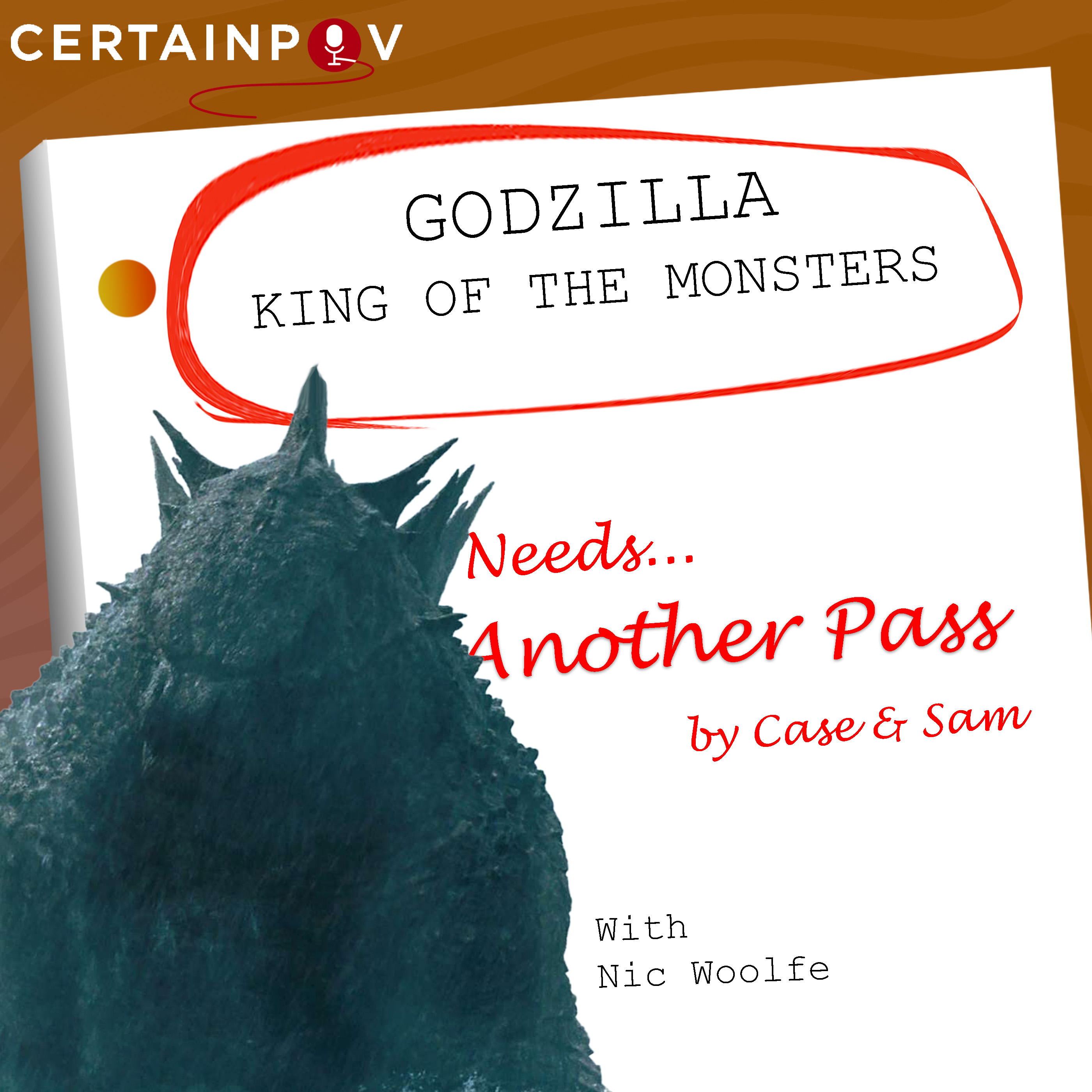
Another Pass at Godzilla: King of the Monsters (2019)
Case and Sam are joined by Nic Woolfe to stomp like a kaiju (stomp stomp stomp)! We're digging into the Monster-verse with "Godzilla: King of the Monsters (2019)"! Overview In the podcast discussion titled "Another Pass at Godzilla King of the Monsters," the hosts, alongside guest Nic Woolfe, delve into their personal connections to the Godzilla franchise, reflecting on how nostalgia and earlier influences shaped their appreciation for Kaiju films. They analyze the 2019 film's financial performance, placing it within the context of the MonsterVerse, and offer praise for its visual elements, character portrayals, and emotional depth. The conversation touches on the film’s themes, such as the insignificance of personal problems against global threats, and critiques the marketing strategies that may have contributed to its underwhelming box office results. The hosts discuss scientific inaccuracies, potential improvements, and casting alternatives, asserting that while the film has its flaws, it remains enjoyable. They conclude with suggestions for future explorations within the franchise, including their next episode focus on "Highlander 2: The Quickening." Notes Introduction and Personal Connections to Godzilla (00:00 - 10:59) Hosts introduce guest Nic Woolfe for their fifth episode together Discussion of personal connections to Godzilla franchise Nick's love for Kaiju came from Power Rangers, Rugrats' Reptar, and later access to classic Godzilla films The hosts establish they all genuinely enjoy the 2019 Godzilla film Movie cost between 170-200 million but only made 387 million, falling short of the $400 million target MonsterVerse Context and Prior Films (10:59 - 21:41) Discussion of 2014 Godzilla film directed by Gareth Edwards as the MonsterVerse starting point Brief mentions of Kong: Skull Island as part of the MonsterVerse Sam shares her family history with Godzilla, particularly her mother's love for monster movies Case discusses the 80s-90s Godzilla marketing push in Western media MonsterVerse is praised for continuing to improve since the 2014 film ️ Visual Elements and Character Appreciation (21:42 - 32:54) Praise for Ghidorah being portrayed as a hurricane with lightning everywhere it goes Discussion of the elemental nature of the Titans: Ghidorah (wind), Godzilla (water), Rodan (fire), Mothra (earth) Appreciation for the film's use of mythology and inclusion of Mothra's twins Strong praise for the cast including Charles Dance, Bradley Whitford, Ken Watanabe Discussion of the emotional scene where Serizawa sacrifices himself Themes and Human Elements (32:54 - 42:52) Comparison between Godzilla: King of Monsters and other Godzilla films including Shin Godzilla Discussion of the family storyline involving Mark and Emma Russell Analysis of the theme that 'it's bigger than you' - problems being insignificant compared to global threats Appreciation for the resolution provided for human characters Commentary on the film's emotional resonance and how it saved Nick during a difficult time Critical Analysis of Marketing and Casting (42:52 - 52:52) Discussion about why the film didn't perform as well financially as expected Analysis of movie title 'King of the Monsters' being reused from the 1950s Suggestion that 'Rise of the Titans' might have been a better title Critique that the film lacked young, attractive lead characters that might draw wider audiences Observation that the film needed more explanation of the various Titans/monsters Scientific Inaccuracies and Improvement Ideas (52:53 - 01:02:28) Criticism of the 'alpha male' science regarding Titans as outdated Suggestion that more monster battles would have improved the film Discussion of effective scenes showing the scale of monsters compared to humans Praise for Ken Watanabe's sacrifice scene and emotional impact Analysis of how the film's marketing could have better emphasized human perspective shots Marketing Critique and Casting Alternatives (01:02:28 - 01:13:52) Proposal that more monster explanations would have helped broader audience engagement Discussion of how modern trailers often reveal too much compared to effective ones like Independence Day Suggestion that Sally Hawkins' character shouldn't have been killed early Idea that Charles Dance could have played Tom Hiddleston's character from Skull Island Commentary on how the film might have benefited from younger actors in certain roles Final Suggestions and Conclusions (01:13:52 - 01:24:43) Discussion about whether including Kong would have helped the film commercially Suggestion to better explain the costs and benefits of Titans to the ecosystem Proposal for including anti-Titan lobbyists or weapons manufacturers as antagonists Overall conclusion that despite its flaws, the film is still highly enjoyable Guest and host contact information shared Announcement that next episode will cover Highlander 2: The Quickening Action items Unassigned Watch 'Godzilla Minus One' while it's still available on Netflix

Another Pass at Another Pass at Captain America: The First Avenger
Case and Sam are looking back at the earliest episodes of the show! Check out their thoughts on the eighteenth episode when Case sat down with Drew Lewandowski and chatted about Captain America: The First Avenger! Overview In the latest episode of the 'Another Pass at Another Pass' podcast, hosts Case Aiken and Sam Alicea review 'Captain America: The First Avenger,' reflecting on its role as a unifying film within the Marvel Cinematic Universe (MCU). They discuss the film's strong character setup in the first half but critique a rushed third act and missed opportunities for deeper character development, particularly concerning the Howling Commandos and the relationship between Howard Stark and Steve Rogers. Praise is given to the casting, especially Chris Evans as Captain America and Hugo Weaving as Red Skull, while discussing suggestions for improving narrative flow. The hosts express a continuing appreciation for the film after rewatching it, noting its effective handling of themes and villains, and they highlight its significance within the broader MCU narrative. Additionally, they touch on the impact of real-world events on superhero films and announce upcoming podcast episodes, wrapping up with promotional messages for other network shows. Notes Introduction to the Podcast and Film (00:00 - 10:16) Case Aiken and Sam Alicea are hosting 'Another Pass at Another Pass' podcast They're reviewing a previous episode about Captain America: The First Avenger The original episode featured Case and his friend Drew Lewandowski Case apologizes for poor audio quality in the original recording They discuss how Captain America serves as a unifying movie in the MCU The film connects elements from Iron Man, Thor, and Hulk through the Tesseract Captain America as a Unifying Element (10:16 - 19:05) Captain America movies serve as unifying elements in the MCU Winter Soldier launched 'phase two' by introducing more complex themes The lines between good and bad become increasingly blurred in later films Captain America represents absolute leadership and teamwork The film establishes the character's role as someone who brings people together Captain America represents the ideals of America, not just super strength Film Structure Analysis (19:05 - 28:33) First half of the film is exceptionally strong, creating a perfect character setup The third act feels rushed with some missed opportunities for character development The Red Skull (Hugo Weaving) is praised as an excellent villain HYDRA's introduction was more significant than initially realized HYDRA allowed for the creation of a Marvel-specific villain organization The film sets up important elements for Winter Soldier and later MCU films ⏱️ Critique of Film Pacing (28:33 - 36:56) The Howling Commandos deserved more screen time and character development The relationship between Howard Stark and Steve Rogers needed more development This relationship becomes important context for Tony/Steve dynamics in later films Bucky's 'death' scene could have been positioned differently in the narrative The train sequence and finale have some structural issues Discussion about how the film could have better bridged its two halves Casting and Character Highlights (36:56 - 45:25) Exceptional casting across the board: Chris Evans, Hugo Weaving, Stanley Tucci Red Skull is one of the most enduring Marvel villains, despite limited screen time Zola's character design cleverly references his comic book appearance Tommy Lee Jones perfectly cast as the military leader Chris Evans found his defining role as Captain America Strong supporting cast with actors who would later become more famous Film Analysis and Improvement Ideas (45:26 - 54:02) Suggestion to add an 'intermission' between the film's two halves Proposal to restructure the third act for better narrative flow The kamikaze pilots subplot criticized as lowering the stakes Suggested improvements for the final confrontation with Red Skull Idea to incorporate Bucky's death as a catalyst for the final mission Discussion about improving the transition between propaganda era and real combat Conclusion of Original Episode (54:02 - 01:02:58) Original hosts wrap up their discussion of the film The movie is praised as being difficult to critique because it's so well-made Recommendation for viewers to rewatch the film with modern context Discussion of how the film fits into the larger MCU narrative Mention of a 'Phase One drinking game' for MCU marathon viewings Final thoughts on the film's significance to the MCU Modern Perspective on the Film (01:02:58 - 01:13:03) Sam and Case discuss their current opinions of the film after rewatching Both hosts remain strongly positive about the film years later The movie holds up exceptionally well in the context of the full MCU Discussion of how the film handles its villain effectively Praise for the subtle character moments and attention to detail Red Skull's appearance in later MCU films briefly mentioned Character Design and Props (01:13:03 - 01:24:11) Excellent adaptation of comic book costumes to realistic military gear Props and set design create an authentic World War II atmosphere Captain America's evolution from USO performer to actual hero is well-executed Small character arcs for supporting characters are effectively included Discussion of how the film works as a family-friendly viewing option Only one potentially scary scene (Red Skull face reveal) noted for young viewers ️ Current MCU Discussion and Conclusions (01:24:11 - 01:39:52) Brief discussion of the recent 'Captain America: Brave New World' film Comparison between the original trilogy and newer Captain America content Discussion of how real-world events affect superhero movie production The consistent writing team for the Captain America trilogy provided narrative strength Announcement of upcoming podcast episodes and network news Farewell and promotional messages for other network shows
Create Your Podcast In Minutes
- Full-featured podcast site
- Unlimited storage and bandwidth
- Comprehensive podcast stats
- Distribute to Apple Podcasts, Spotify, and more
- Make money with your podcast

